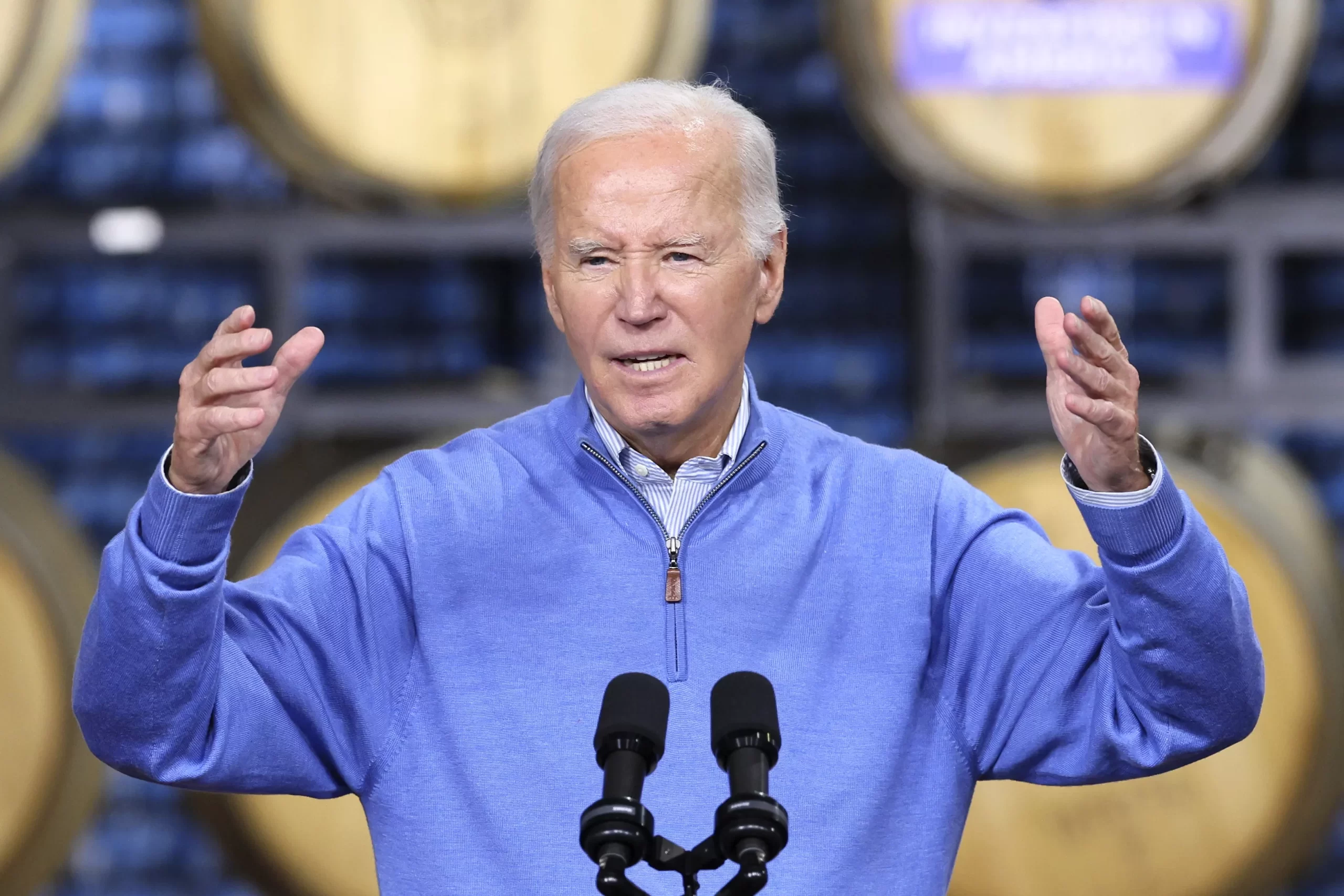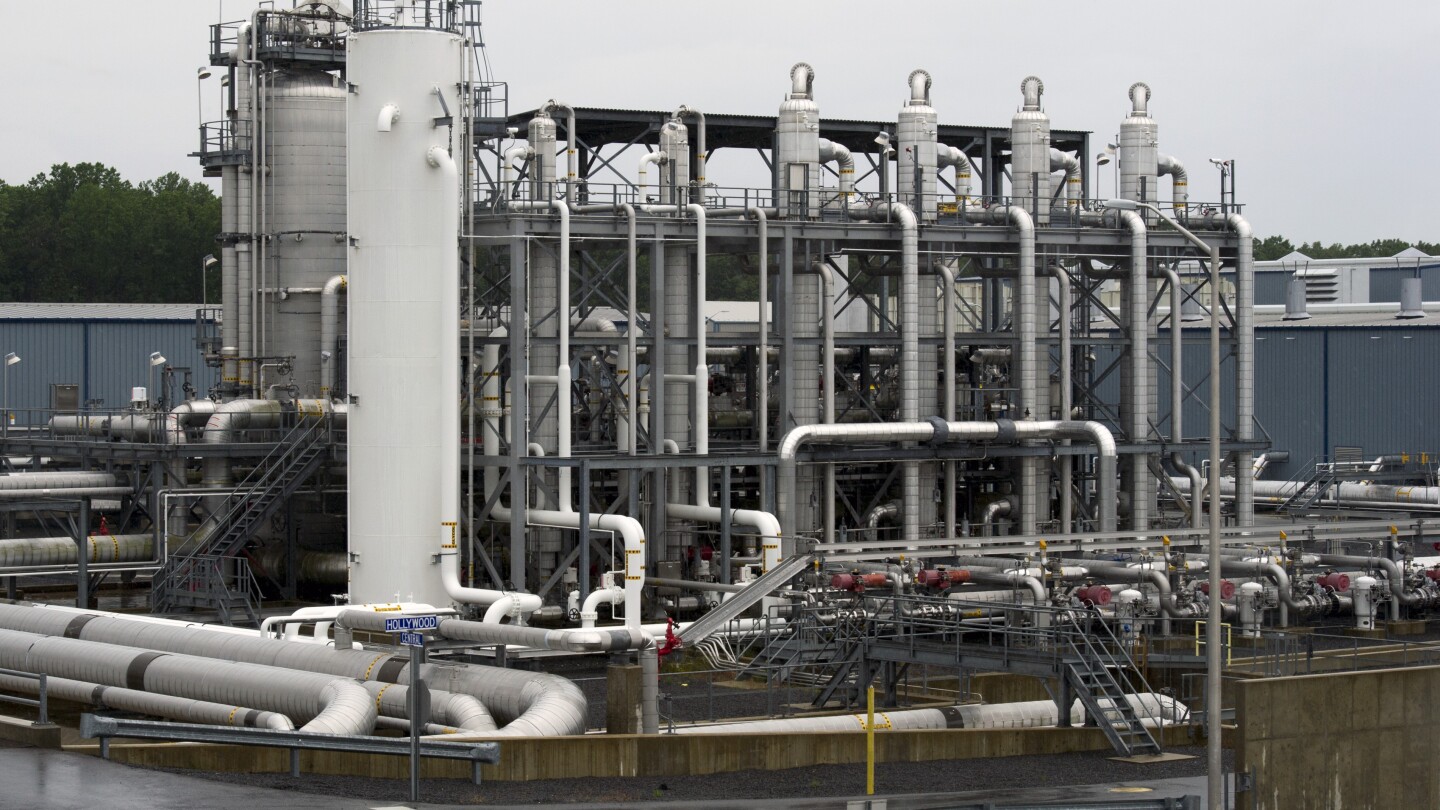The Biden administration has opted to postpone the evaluation of new natural gas export terminals in the United States despite the surge in gas shipments to Europe and Asia following Russia’s invasion of Ukraine.
This decision aligns with President Joe Biden’s commitment to address climate change and reduce climate pollution by 50% by 2030, a stance supported by environmentalists concerned about the potential increase in exports of liquefied natural gas (LNG) leading to planet-warming emissions.
In a statement on Friday, President Biden emphasized the administration’s dedication to climate action, contrasting it with what he sees as the climate crisis denial from some factions. He expressed a commitment to prioritizing the voices of young people and frontline communities demanding action against climate change.

Biden Postpones Evaluation of New Natural Gas Export Terminals, Citing Climate Concerns (Credits: WBAL)
The White House contends that the current economic and environmental analyses used by the Energy Department to assess LNG projects lack sufficient consideration of potential cost hikes for American consumers and manufacturers, as well as the impact of greenhouse gas emissions.
Industry groups criticized the delay, labeling it a “win for Russia,” while environmentalists celebrated it as a response to their long-standing concerns. Environmental activist Bill McKibben acknowledged the decision’s bravery, anticipating backlash from opponents like Donald Trump, who withdrew from the Paris climate accords during his presidency.
McKibben highlighted the proposed LNG export terminal in Louisiana, emphasizing that it would produce about 20 times the greenhouse gas emissions of the Willow oil project approved by Biden in Alaska last year. He also noted the political implications, stating that the decision’s significance may be short-lived if Biden is not reelected.
Energy Secretary Jennifer Granholm clarified that the pause would not impact already authorized export projects and existing LNG terminals would continue supplying gas to Europe and Asia. Granholm assured that exceptions could be made for national security needs if necessary.
The duration of the permitting pause remains undisclosed, but a comprehensive study on the environmental, economic, and national security implications of proposed LNG projects is expected to take months. This timeline suggests that decisions on pending LNG projects may be postponed until after the 2024 presidential election.
The article highlighted the growth of U.S. liquefied natural gas exports over the past decade, making the U.S. the world’s largest gas exporter. The surge in exports followed Russia’s invasion of Ukraine in February 2022, with the Biden administration considering U.S. gas deliveries to Europe and Asia as a strategic move against Russian President Vladimir Putin.
The American Petroleum Institute criticized the decision, framing it as detrimental to U.S. allies, jobs, and global climate progress. Energy Secretary Granholm, however, emphasized the need for a comprehensive understanding of global energy market dynamics, long-term supply and demand, and environmental factors to make informed decisions about export authorizations.
Environmental consultant Jeremy Symons praised Biden’s decision as a “game-changer” in the fight against climate change, asserting that the federal government would no longer allow massive fossil fuel projects to escape scrutiny.
He specifically mentioned the Calcasieu Pass 2 project along Louisiana’s Gulf Coast as a target for environmental activists, emphasizing its potential impact on climate and the economy. The project, if built, would be the nation’s largest export terminal.
In response, a spokeswoman for the Calcasieu Pass 2 project expressed concerns about the administration’s uncertain stance on U.S. LNG reliability for allies’ energy security. She argued that a prolonged pause on LNG exports could shock the global energy market, potentially leading to increased greenhouse gas emissions by prompting a shift to coal.
Climate activists disputed this perspective, asserting that LNG is a significant contributor to climate change due to methane leaks and the energy-intensive process required to liquefy the gas. Overall, the article highlighted the complex interplay between economic, environmental, and geopolitical considerations in the Biden administration’s decision-making on natural gas exports.























